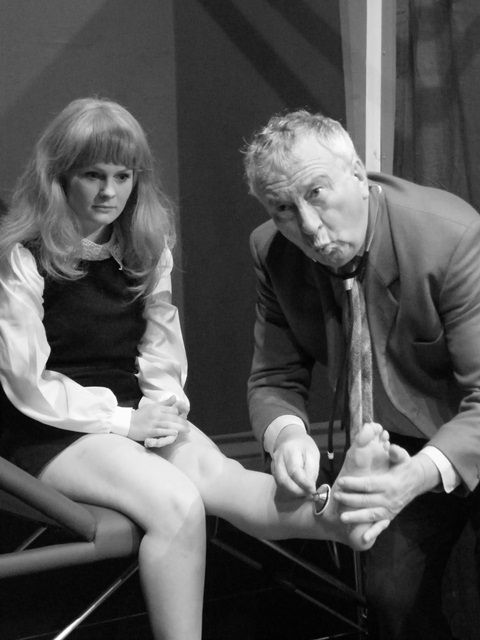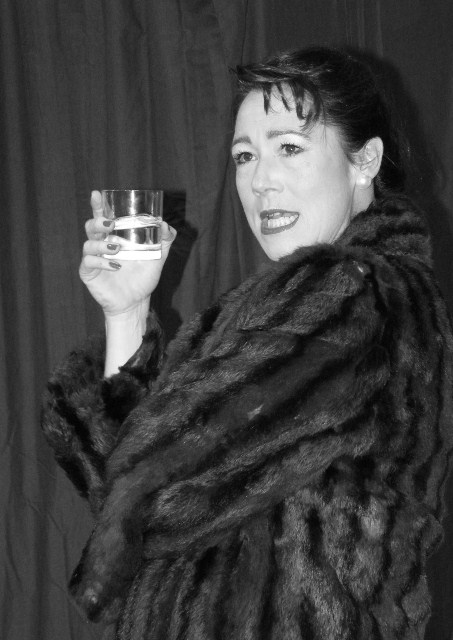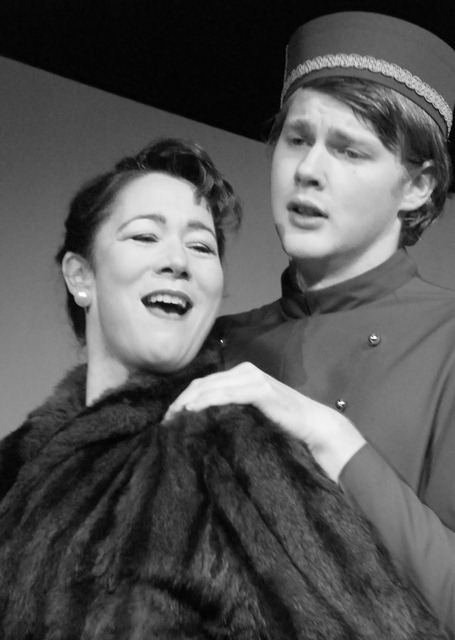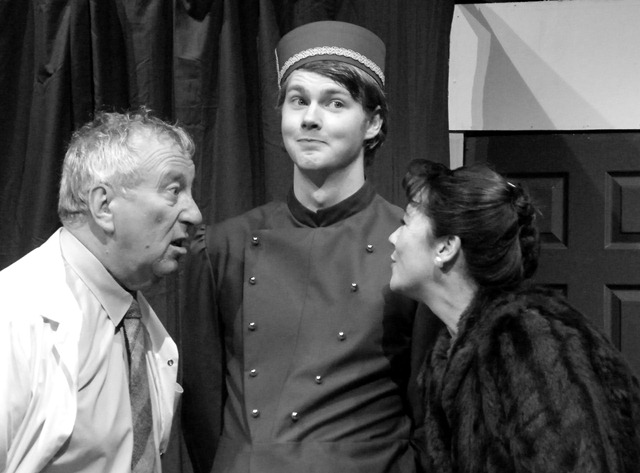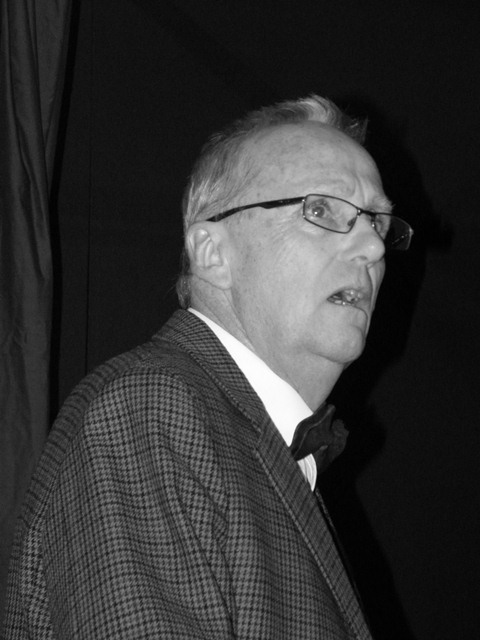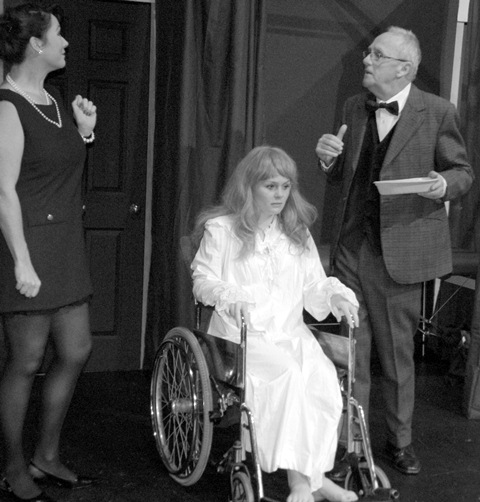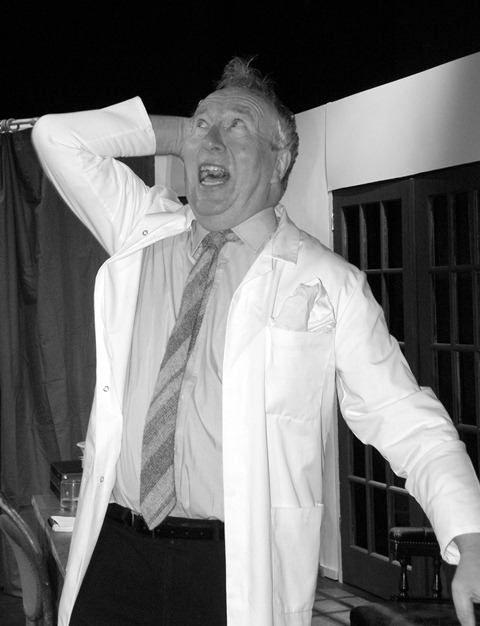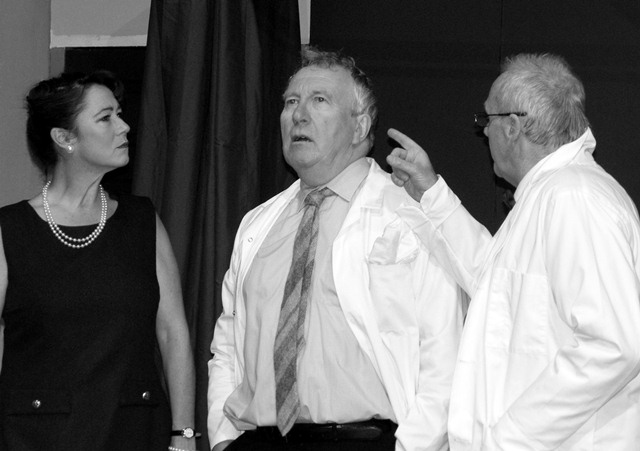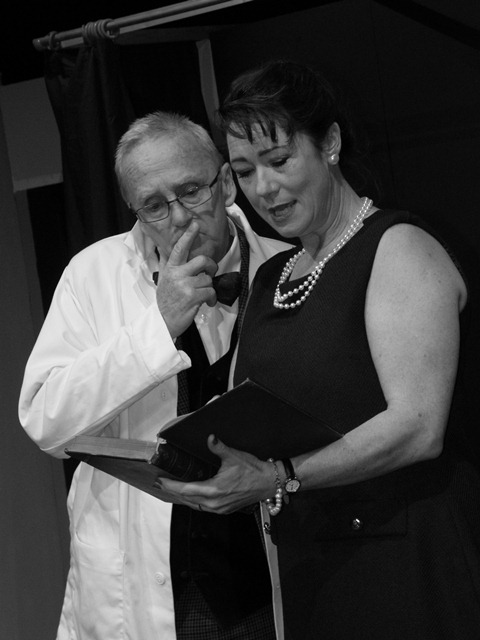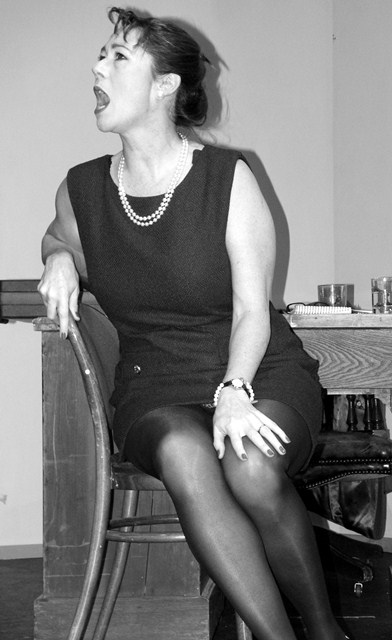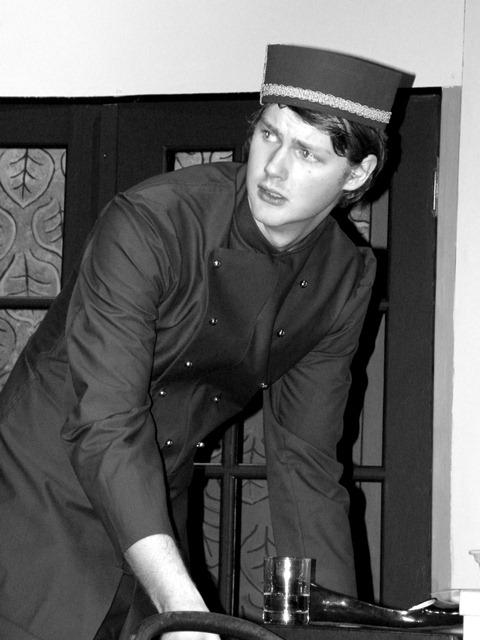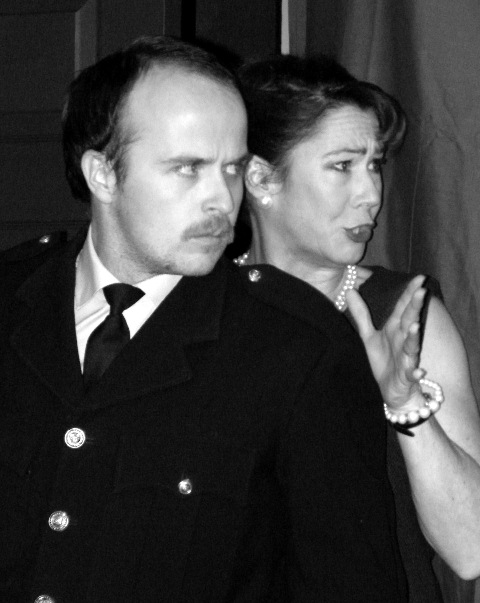The Bench Production
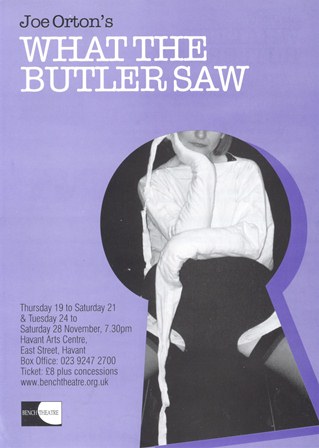
This play was staged at The Spring Arts and Heritage Centre (formerly Havant Arts Centre), East Street Havant - Bench Theatre's home since 1977. Listen to the show trailer as broadcast on Angel Radio. Sarah Parnell was nominated for 'Best Amateur Actress' for her portrayal of Mrs Prentice in The Southern Echo 'Curtain Call' Awards 2009.
Cast
| Dr Prentice | Peter Corrigan |
| Geraldine Barclay | Sian Green |
| Mrs Prentice | Sarah Parnell |
| Nicholas Beckett | Jack Cronin |
| Dr Rance | Pete Woodward |
| Sergeant Match | Dan Finch |
Crew
| Director | Mark Wakeman |
| Producer | Sally Hartley |
| Stage Manager | Zoë Chapman |
| Assistant Stage Managers | Sharon Morris Jen Jones |
| Lighting Design | Damon Wakelin |
| Lighting Operation | Charley Callaway |
| Sound Design | Darryl Wakelin |
| Sound Operation | Jaspar Utley |
| Costume Design | Francine Huin-Wah |
| Set Design | Francine Huin-Wah |
| Set Construction | Simon Growcott |
| Poster and Flier Design | Pete Woodward |
| Programme Editor | Derek Callam |
| Photography | Dan Finch Lorraine Galliers |
| Front of House Manager | Sally Hartley |
Director's Notes
This year for us, in the Bench, has been an epic journey spanning five decades. The idea to perform a play from each decade of the company's existence as a celebration of our 40th anniversary has allowed us to do what we do best, present exciting and challenging theatre. It has also allowed us the opportunity to present a world premiere of a play written specifically for our 'State of the Nation' theme.
So now as the year draws to a close we find ourselves back at the beginning in 1969 when the Bench Theatre first exploded onto the local theatre scene with their production of 'Six Characters in Search of an Author'. 'What the Butler Saw' was first performed in 1969 making it the 40th anniversary also of this stage classic, the last play written by Joe Orton and only performed after his death. Despite only producing three full length plays Orton is considered a master of the black comedy genre with this, his final show being full of his trademark quick-fire dialogue and wild comedy.
The 1960s opened up comedy in varied ways, many considering it a golden age. 'Hancock's Half Hour' and 'Steptoe and Son' ruled the television ratings. The Goons recorded their last radio series in 1960 and were repeated throughout the decade and beyond, influencing those who were to come after them, not least he incredibly popular 'Round the Horne'. Also making its debut in 1969, the comedy show that would probably be the biggest influence on any to come thereafter, 'Monty Python's Flying Circus.'
In the cinemas the 'Carry On' series was at its peak in the Talbot Rothwell scripted era (also the writer of the classic series 'Up Pompeii') proving that Britain's love of saucy humour and innuendo was strong. (The films were frequently in the top five box office films of the year and for several years were THE number one box office draw which is something often forgotten!) As well as all this we had 'That Was The Week That Was', 'Beyond the Fringe', 'Not Only But Also' and Spike Milligan's 'Q' series.
Orton manages to combine the strongest elements of a number of these sources: farce and innuendo, political satire and surreal visuals existing in an impossible world where anything can happen. These elements together combine to make what is considered one of the funniest plays ever written. Interest in Orton is still as strong today as when he was working in the 60's with his biopic 'Prick up your Ears' running in the West End and a recent revival of one of his earlier plays 'Entertaining Mr Sloane' also proving a large draw for audiences recently. I was therefore delighted that the Bench chose to select this play as their representative of the 1960s era and after a year of powerful drama it's nice for us to let our hair down a little and present you with a great slice of entertainment that enables us to finish our 40th anniversary year in a celebratory manner.
Thank you for continuing to support local theatre, without you we and groups like us would not be able to continue to bring the best in world theatre to the local stage. So keep on coming... and bring all your friends too!!!!
Mark Wakeman
Reviews
The NewsJames George
Worth seeing What The Butler Saw
There's a mind-set to Joe Orton's work that makes me think he died at exactly the right time. I suspect the novelty of his plays wouldn't have lasted much beyond his three great pieces, Entertaining Mr Sloane, Loot and What The Butler Saw, all peopled with grotesques, filled with stylised language and peppered with Orton's biting, satiric but ultimately challenging and uncomfortable wit. The last of these - What The Butler Saw - is The Bench's latest performance and generally it's fine stuff.
Mark Wakeman (also - at this performance - brilliantly playing protagonist Dr Prentice) certainly stamps his mark on the piece as both director and actor with a fine, mania-ridden performance. As his wife, the Zoë Wannamaker-esque Sarah Parnell excels in expression and timing and Sian Green and Jack Cronin provide able comic support as the youngsters.
Peter Woodward's Dr Rance is a fine creation, but his often-speedy delivery leads, sometimes, to the ends of words and phrases being swallowed. Dan Finch completes the cast as the bewildered sergeant of police. As-black-as-the-gates-of-hell hilarious, an Orton is always worth seeing.
The News, 20th November 2009
remotegoatJill Lawrie
Comic fantasies of psychiatric diagnosis!
This is the final production from Bench Theatre's 40th anniversary year, in which they have produced a selection of pieces depicting each decade. 'What the Butler Saw' was written by Joe Orton in 1969, the year this theatre company was formed, and at the time this anarchic farce both shocked and appalled with its sexual references and lack of respect for morality and authority. Over time this has now become a contemporary classic.
The plot is set in a mad house, a private psychiatric clinic run by the lustful Dr Prentice, interviewing an incredibly naïve Geraldine Barclay for the position of secretary. Asking her to strip naked and lie on the couch, his attempted seduction is thwarted by the appearance of his nymphomaniac wife, who is being blackmailed by the hotel bellboy producing photos of their entanglement the previous night! Add to this the surprise investigation from a Government Inspector a crackpot psychiatrist Dr Rance and you have a recipe for farcical madness - absurd lines, mistaken identities, cross-dressing, door slamming, dropped trousers...!
Due to Peter Corrigan's sudden admission to hospital, Director Mark Wakeman at the last minute had to step into his shoes and play the part of Dr Prentice, and what an incredible job he did too. A superb performance and barely evident that he carried his script. His performance brilliantly illustrated the doctor's improbable dilemmas of incrimination and mistaken identity. Mention too for a relative newcomer to the company Sarah Parnell (Mrs Prentice) who was outstanding with her amusing air of aloof superiority in the face of such insanity alongside her seductive charms. Peter Woodward (Dr Rance) took on the challenging role of this virtually certifiable character!
All in all an extremely entertaining performance where "the sane appear as strange to the mad as the mad to the sane"!
remotegoat, 21st November 2009
Daily EchoAnne Waggott
What the Butler Saw, Bench Theatre
An ordinary day at a private psychiatric practice descends into chaos with mistaken identities, gender confusion and sex-shenanigans when the psychiatrist interviews his prospective secretary by attempting to seduce her; fine lines between sanity and madness, doctor and patient, and man or woman quickly start to blur.
Peter Corrigan (reminiscent of a cross between Frankie Howerd and Simon Callow) was highly entertaining, blustering and leering his incorrigible way through the mayhem. Sarah Parnell was also excellent as his wife, the perfect 'straight woman' as his foil, showing great skill with visual humour and ideal timing.
Daily Echo, 28th November 2009
